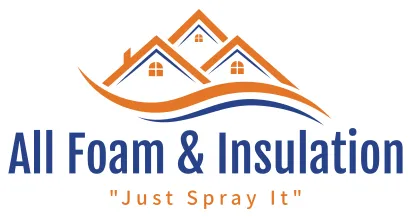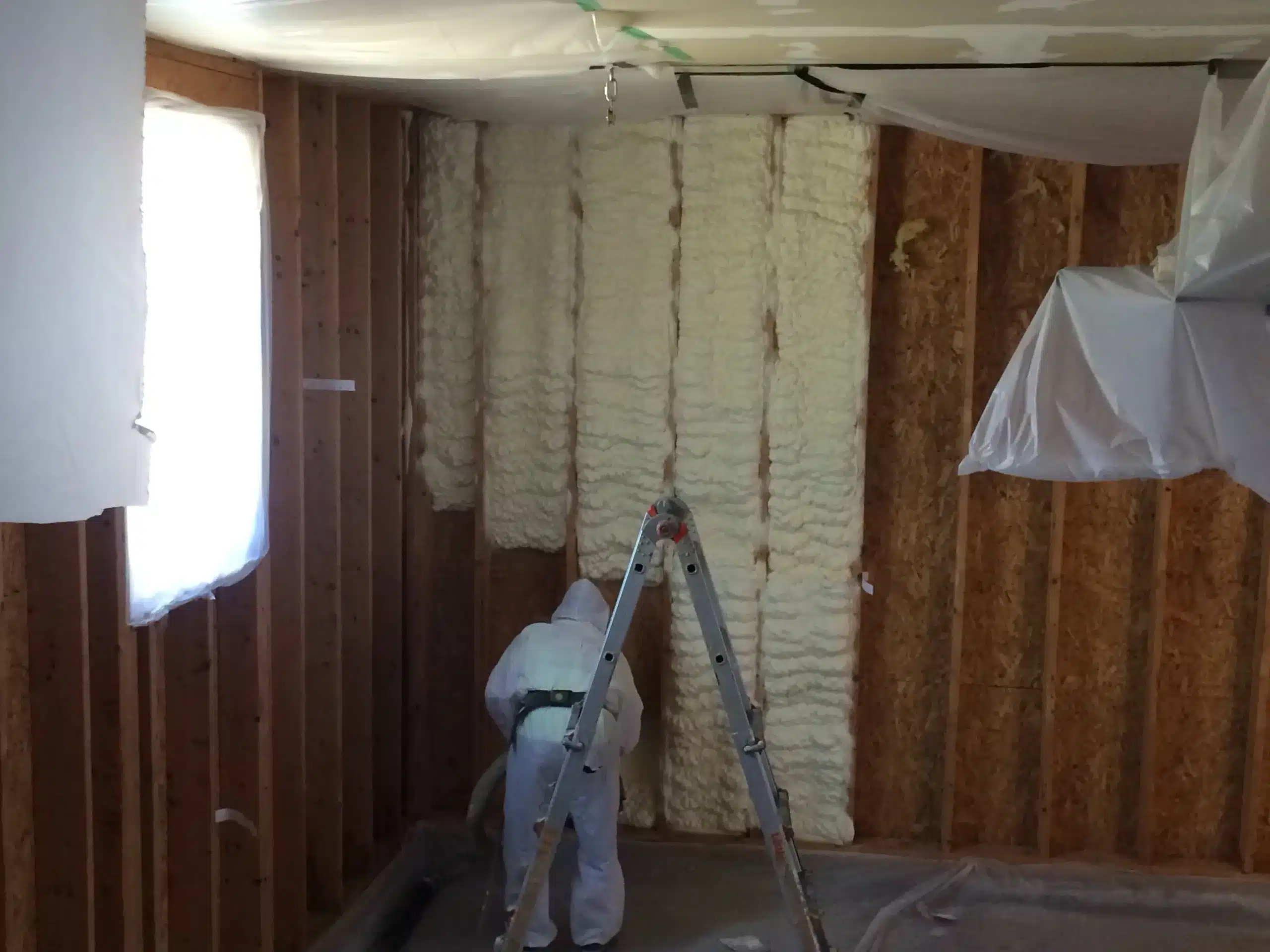Want your home or business to save energy? Insulation’s the key. Spray foam insulation works amazing – it lasts forever and saves you tons of money on energy bills. If you’re living around Medford, knowing about different insulation types like spray foam, fiberglass batts, and blown-in stuff could really help you out. Let’s look at some smart ways to use these options.
Why Spray Foam Insulation?
You won’t believe how good spray foam is at keeping air from leaking out. When the weather gets crazy in Medford – freezing winters and hot summers – you need something reliable to keep inside temperatures just right. The stuff basically pays for itself because your energy bills drop so much. Plus, it keeps moisture away, so you don’t got to worry about mold growing in your walls.
The best part about spray foam insulation? It just keeps working year after year, hardly needs any maintenance. Whether your running a business or living in your house, it’s worth every penny cause it protects your building and keeps things quiet inside. Makes sense why so many people use it for homes and businesses both.
Understanding Closed-Cell vs. Open-Cell Spray Foam
Closed-Cell Spray Foam
This stuff’s super dense and tough. Keeps water out completely and makes buildings stronger too. Works perfect in metal buildings and pole barns – makes them stronger while keeping water damage away. Really good for roofs too, helps them last longer and saves energy.
If you got a commercial building, closed-cell foam’s the way to go. Not only does it keep the temperature right, but it actually makes the whole building stronger. That’s why building owners love it – saves money and makes everything more stable.
Open-Cell Spray Foam
Open-cell foam’s lighter and cheaper, but still works great. Gets into all the weird spaces and corners cause it expands so much. Perfect for inside walls – keeps noise down and heat in. If you’re trying to save money, open-cell foam’s your best bet.
Another cool thing about open-cell spray foam is that it lets walls breathe a bit. While it ain’t as good with water as closed-cell spray foam it still stops air from leaking and saves energy. Makes sense to use it inside where you don’t need something super tough.
Complementary Insulation Options
Sometimes you want to mix different types of insulation together. Smart property owners know how to balance what works best with what costs less.
Fiberglass Batt Insulation
People keep using fiberglass batts cause they’re cheap and easy to put in. Works real good in attics and basements, adds extra protection against heat loss. When you use it with spray foam, you get even better results, especially in new buildings. Makes sure every part of your building stays warm or cool, depending what you want.
For new walls, fiberglass batts work great alongside spray foam. Together, they stop heat from escaping better than either one alone. That’s why lots of people choose this combo – it just makes sense.
Blown-In Insulation
Got an old house? Blown-in insulation’s perfect for that. Gets into all those weird spaces old houses have, fills them up nice and easy. Doesn’t take long to put in either, which means less hassle for you.
Works really well with spray foam too, especially in older buildings where the old insulation isn’t doing its job anymore. Helps plug up all those spots where heat’s escaping, makes everything work better.
Membrane Roofing
Big commercial buildings? Listen up. Membrane roofing plus spray foam insulation‘s like a power combo. The membrane keeps rain and snow out, blocks those nasty UV rays too. Put spray foam under it, and you’ve got yourself a super-efficient building.
The cool thing about membrane roofing? It reflects heat away, so your building stays cooler naturally. Put these two together, and you’ll see your energy bills drop like crazy.
Expert Tips for Maximizing Energy Efficiency
1. Choose the Right Insulation Type
You gotta pick what works best for your situation. Think about stuff like how much moisture you got, what your building needs, and how much money you can spend. Want something for a wet basement? Go closed-cell foam. Need to keep noise down inside? Open-cell foam’s your friend.
Need different types in different spots? Talk to someone who knows their stuff. They’ll tell you exactly what mix works best for saving energy without breaking the bank.
2. Address Air Leaks
Don’t matter how good your insulation is if air’s leaking all over. Check around windows, doors, and up in the attic – those are the usual suspects. Fix any gaps before you put in new insulation. Otherwise, you’re just throwing money away.
Keep checking for new leaks too. They can show up over time, and fixing them quick keeps everything working like it should.
3. Optimize Roof Insulation
Your roof’s super important for saving energy, especially in big commercial buildings. Put membrane roofing and spray foam together, and you’ve got yourself a winner. Keeps the weather out and saves money on heating and cooling.
Got a house? Spray foam in the attic works wonders. Keeps your temperature steady inside and your HVAC system doesn’t have to work so hard.
4. Combine Insulation Types
Using different types of insulation together often works better than just using one kind. Like putting spray foam with fiberglass batts – they work together to cover all your bases. Really helps in big buildings or places with different needs.
Smart property owners know different insulation types have different strong points. Use them right, and you’ll get the best of everything – good performance without spending too much.
5. Hire Certified Professionals
Getting insulation put in right makes all the difference. Good contractors know what they’re doing – they’ll check out your property, tell you what works best, and do the job right. Working with pros like All Foam & Insulation, LLC means you’ll get your money’s worth.
Plus, they know all the building codes and rules. Means you won’t have any problems down the road.
6. Regular Maintenance and Inspections
Gotta keep an eye on your insulation to make sure it’s still doing its job. Things can wear out or change over time. Regular checks help catch problems before they get big.
This is extra important in old buildings. Sometimes you need to add more insulation or fix what’s there to keep everything working right.
Case Studies: Real-World Applications in Medford
Residential Example: New Construction Home in Medford
Someone built a new house here and used closed-cell spray foam in the attic and walls. Their heating and cooling bills dropped 25% in the first year. The house stayed comfortable all year round cause the insulation kept everything sealed up tight.
They loved how tough it was and how it kept moisture out too. Showed everyone how good spray foam is for new houses.
Commercial Example: Metal Building in Eagle Point
A business owner put closed-cell spray foam in their metal building. Made the whole place stronger and more weatherproof. Saved them money on fixes and energy bills, made the building last longer too.
Shows how spray foam works great for commercial buildings, especially when you need something tough that’ll last.
Ready to Improve Your Property’s Energy Efficiency?
Need insulation in Medford, Ashland, Central Point, Eagle Point, Grants Pass, Roseburg, or White City? Give All Foam & Insulation, LLC a call. We know everything about closed-cell and open-cell spray foam, fiberglass batts, blown-in insulation, and membrane roofing. Let us help make your place more comfortable and energy-efficient.
Contact Us Today:
Phone: (541) 826-9600
Email: [email protected]
Website: [email protected]
Frequently Asked Questions (FAQs)
How long does spray foam insulation last?
Most times it’ll last 20 years or more if you get it put in right.
Can spray foam insulation reduce noise?
Sure can, especially open-cell foam – it’s really good at stopping noise.
Is spray foam insulation safe?
Yep, when professionals put it in, it’s completely safe.
How do I know which type of spray foam is right for my property?
Talk to a professional – they’ll check out your property and tell you what’ll work best.



